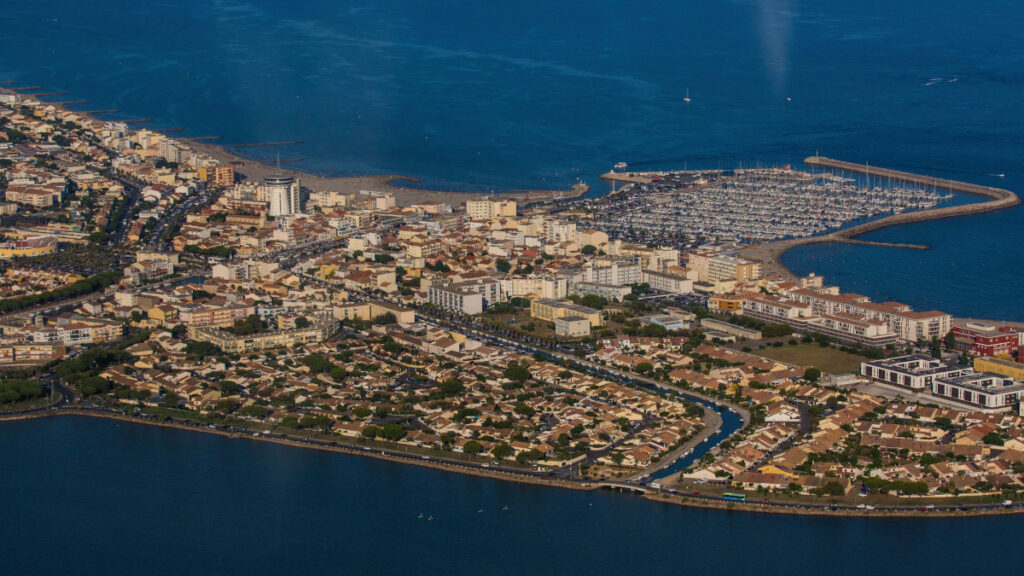[LUM#18] “Coastal risk management will be inter-territorial or it will not be at all”
In the Gulf of Lion, 25% of the coastline is subject to erosion. This widespread phenomenon, which carries with it the risk of coastal flooding, raises questions about inter-territorial relations, particularly in Montpellier, where spatial restructuring cannot take place without dialogue between the metropolitan area and coastal municipalities. Explanations are provided by political science researchers Sylvain Barone (G-Eau) and Laura Michel (Cepel), author of the book Métropole et risques littoraux(Metropolis and Coastal Risks).

This " Popsu " study (platform for observing urban projects and strategies) was conducted in collaboration with the Montpellier metropolitan area. What are the specific political characteristics of this territory?
S.B.: Coastal risk management policies emphasize the importance of planning on a larger scale than just the beach. Montpellier, as a metropolitan area, is central to this equation, but from an institutional point of view, it has only one directly coastal municipality, Villeneuve-lès-Maguelone. The other coastal municipalities in the urban area are part of the Pays de l'Or Agglomeration (POA). Coastal risks have long been a political blind spot for Montpellier. This is no longer the case.
Which authorities are responsible for these risks?
L.M.: The risk of flooding remains a matter for the state. Erosion, on the other hand, is considered a gradual natural risk that can be anticipated through local development policies. It is therefore largely the responsibility of local actors. With the climate and resilience law, municipalities affected by coastal erosion will have to include a map of areas subject to erosion in their urban planning, with consequences in terms of buildability.
Is there no dialogue between the metropolitan area and coastal municipalities on these issues?
S.B.: There has been a history of conflict between Montpellier and these municipalities, but it is beginning to ease. A major study was conducted on the future of governance in the Gulf of Aigues-Mortes (GAM). This provided an opportunity for dialogue between Montpellier and neighboring intermunicipal communities, as well as with various public institutions, the Water Agency, the French Office for Biodiversity, and others. Coastal risk management will be inter-territorial or it will not happen at all (Midi Libre, April 28, 2023).
Has the government completely disengaged from the issue of erosion?
L.M.: No, as part of Plan Littoral 21, the Region, the government, and the Banque des Territoires are supporting six territories in implementing local strategies for coastal management and spatial restructuring. The aim is to build on existing forms of cooperation. For the Gulf of Aigues-Mortes, the study serves as a stepping stone for building this strategy.
Could it take the form of joint governance?
S.B.: With the GAM study, local authorities opted for a system of agreements based on consensus, which allows for greater flexibility. Another option would have been a joint union-type structure, but that would have involved majority decision-making. Minority local authorities could have been forced to implement measures with which they did not agree.
L.M.: At the regional level, one possible form of governance was the public interest group, but the stakeholders did not want to add another layer to the existing multi-layered structure. But we can clearly see that progress is being made; the stakeholders are participating in the workshops and are present.
The metropolis is sometimes criticized for being a tool for economic competition between regions. Is it effective on environmental issues?
S.B.: That's a legitimate question, but at the local level, no other community has as many resources and skills to support this spatial reorganization. Should the metropolis decide and manage alone? No, of course not. In fact, we are moving towards forms of governance that promote more symmetrical relationships between public actors. Beyond that, it will be interesting to include citizens and associations in order to bring these issues to life in the public sphere.
Isn't there also a disconnect between the electoral calendar and the ecological calendar?
L.M.: Issues of risk adaptation require looking ahead several decades and taking an integrated approach that goes beyond short-term operational urban planning. Metropolitan areas do not necessarily have the tools to involve citizens in issues that are often presented as technical but are eminently political because they involve choices that will have a significant impact on people. It is not easy for an elected official to tell their constituents that they will have to move; they should not have to bear this burden alone.
L.M.: Climate change will cause sea levels to rise; this is irreversible. But the problems we face today are mainly due to massive coastal development and the exploitation of rivers upstream. We need to question the model of urbanization.
S.B.: We also need to question the tourism model, but talking about spatial restructuring for campsites or hotels on the seafront is complicated.
Is this a lack of political will on the part of local authorities?
L.M.: They are subject to contradictory injunctions. They are told that they must consume less space, move towards zero net land take, take risks into account, etc. But they are also asked to produce housing, and their resources are largely based on urbanization and tourism.
S.B.: This region faces extremely challenging issues in terms of population density, facilities, major infrastructure, agriculture, and biodiversity, as well as very serious constraints such as the risk of coastal flooding, but also runoff, river flooding, wildfires, and more. Montpellier is almost a borderline case, which makes it a fascinating area for research.
Find UM podcasts now available on your favorite platform (Spotify, Deezer, Apple Podcasts, Amazon Music, etc.).